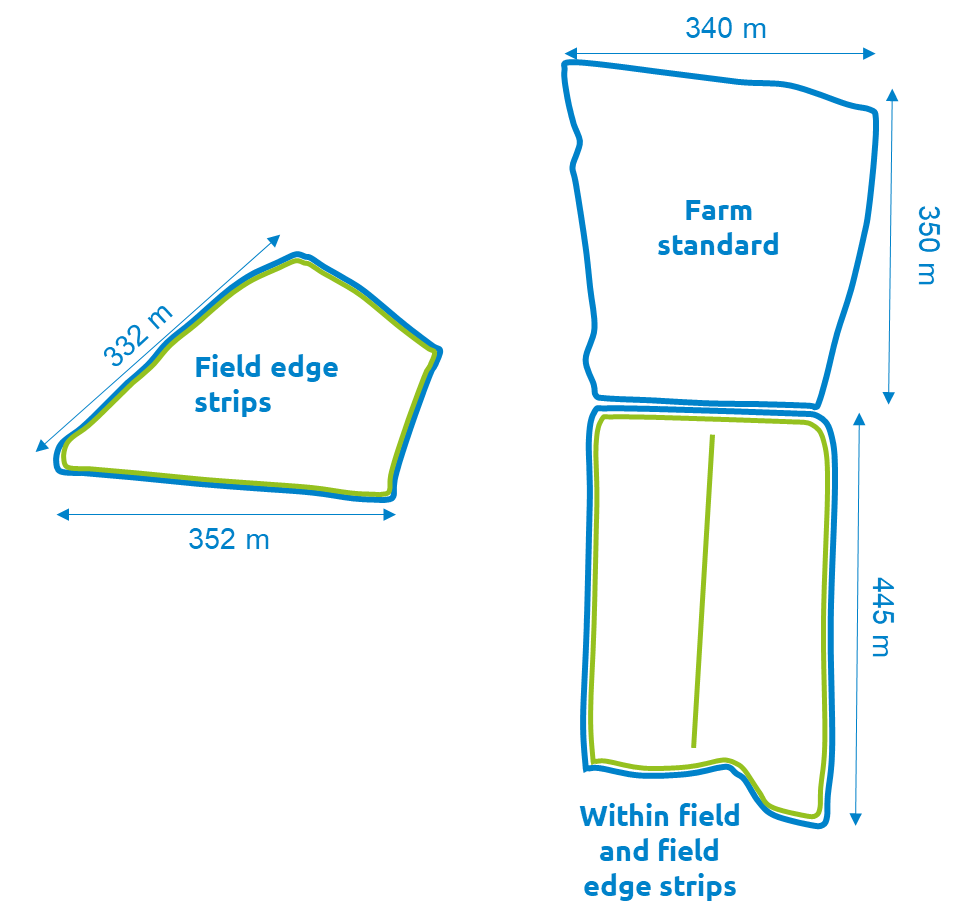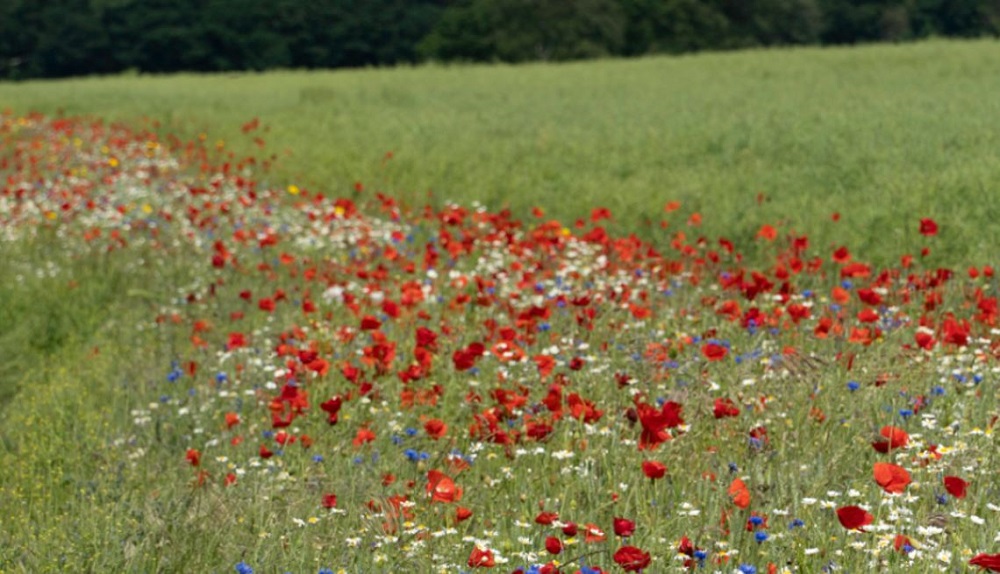Can insecticide use be reduced with in-field flower strips?
Tuesday, 14 December 2021
Investigations into whether flower strips can encourage beneficials and reduce the need for insecticide applications are being carried out at Strategic Cereal Farm East. Farm host, Patrick Barker, discusses the approach and shares thoughts on the initial findings.
Find out more about the flowering strip trials
The way I summarise our approach to in-field flower strips is ‘build it and they will come.’ The strips attract insects that are beneficial for pollination and pest control. Enhancing insect predators and parasitoids (numbers and activity) is a key component of integrated pest management (IPM).
The flower strip trial is in three fields in the same rotation across the farm. Two have six metre margins – one with a margin all around the edge, the other has a margin round the edge and down through the centre and the third, a farm standard, has no margin.

We established the margins in spring 2020 and the central plot in autumn 2020. They have all performed well. Monitoring, by NIAB, this summer, gave data to support that – they found 16 grass and flowering species in a one metre quadrat. I think that’s down to ensuring we sowed the right species, for our soil type, in good conditions.
The strips provide flowers in spring and summer and overwintering habitat in the autumn and winter. NIAB found that no two fields were alike in their composition of invertebrate pests and beneficials.
Generally, there were numerous natural enemies across the trial. However, it was difficult to draw conclusions because the number of aphids was low – with numbers well below treatment thresholds in all parts of the trial.
There were few aphid predators (lacewing, hoverfly and ladybird larvae) in the pitfall and water traps across the trial too. Naturally, this is likely to be linked to the fact that there were no aphids around for them to eat.
Flower strips are not just about biodiversity for us. It is also about discovering how we reduce our inputs. Insecticides can be expensive and potentially damaging. So, from a business point of view, if we can achieve aphid control through IPM, then every time the sprayer doesn’t go out, there is a bit more money in the back pocket.
This blog is part of a series produced following Strategic Cereal Farm Week (winter 2021/22). Our Strategic Cereal Farms put cutting-edge research and innovation into practice on commercial farms around the UK. The week of online events featured the latest results, delivered by our farm hosts, industry experts and researchers.
 AHDB
AHDB

